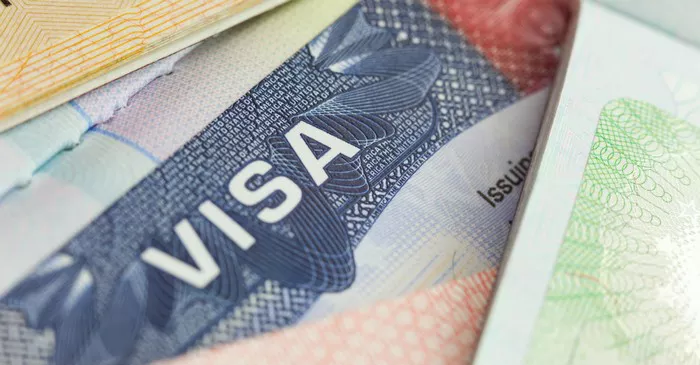In the realm of international travel and immigration, temporary visas play a crucial role in facilitating short-term stays for various purposes in the United Kingdom (UK). Whether it’s for tourism, business, study, or other specific activities, navigating the landscape of temporary visas requires a clear understanding of the types available, their requirements, application processes, and conditions attached. This comprehensive guide aims to delve into the intricacies of temporary visas in the UK, providing prospective travelers and applicants with essential information to ensure a smooth and informed journey.
Types of Temporary Visas in the UK
The UK offers a range of temporary visas tailored to different purposes and durations of stay. Each visa category is designed to accommodate specific activities and circumstances, ensuring that visitors can legally enter and remain in the country for the intended purpose. Here are some of the primary types of temporary visas available:
1. Visitor Visas
Standard Visitor Visa: Ideal for tourists, those visiting family or friends, or for short-term business visits.
Marriage Visitor Visa: For individuals intending to marry or enter into a civil partnership in the UK.
Permitted Paid Engagement Visa: Allows individuals to undertake specific paid engagements without needing a work visa.
2. Work Visas
Tier 5 Temporary Worker Visa: Covers various work categories including charity workers, religious workers, and creative and sporting workers.
Intra-Company Transfer Visa: Facilitates the transfer of skilled employees within multinational companies.
3. Study Visas
Tier 4 Student Visa: Enables international students to study at an accredited institution in the UK.
4. Transit Visas
Direct Airside Transit Visa (DATV): Required for individuals passing through the UK on their way to another destination without passing through immigration control.
Key Requirements for Temporary Visas
Each type of temporary visa in the UK has specific requirements that applicants must meet to be eligible for consideration. These commonly include:
Purpose of Visit: Applicants must clearly state the reason for their visit and provide supporting documentation.
Financial Means: Demonstrating the ability to support oneself financially during the stay in the UK.
Health Insurance: Depending on the visa type, providing evidence of adequate health insurance coverage may be necessary.
Ties to Home Country: Showing strong ties to the home country, such as employment, family, or property ownership, to prove intention to return after the temporary stay.
English Language Proficiency: Some visa categories may require evidence of English language proficiency, especially for study and work visas.
Application Process
The application process for a temporary visa in the UK typically involves several steps:
Online Application: Applicants are required to complete an online application form through the official UK government website.
Biometric Information: Depending on the visa type, applicants may need to provide biometric information (fingerprints and photograph) at a visa application center.
Supporting Documents: Essential documents such as passport, photographs, financial statements, and proof of accommodation must be submitted with the application.
Visa Fee: Payment of the applicable visa fee is required at the time of application.
Interview: In some cases, applicants may be required to attend an interview at the visa application center.
SEE ALSO: WHAT COMPANIES SPONSOR WORK VISAS IN THE UK?
Processing Times and Fees
Processing times for temporary visas can vary depending on the type of visa, the applicant’s nationality, and the time of year. Generally, it is advisable to apply well in advance of the intended travel dates to allow for sufficient processing time. Visa fees also vary and are non-refundable, regardless of the outcome of the application.
Conditions and Restrictions
Once granted, temporary visas come with specific conditions and restrictions that visa holders must adhere to:
Length of Stay: Visa holders must leave the UK before the visa expires unless they apply and are granted an extension.
Employment Restrictions: Some temporary visas may restrict or prohibit employment in the UK.
Travel Restrictions: Certain visas may limit travel to specific regions or countries during the stay.
No Access to Public Funds: Visa holders are generally not entitled to access public funds or benefits in the UK.
Extending or Switching Visas
In cases where individuals wish to extend their stay or switch to a different visa category, it is essential to follow the specific guidelines and requirements set by the UK Home Office. Extension applications must typically be made before the current visa expires, and switching between visa categories may involve additional documentation and fees.
Conclusion
Navigating the realm of temporary visas in the UK requires careful planning, adherence to regulations, and a clear understanding of the specific visa type that best suits the purpose of your visit. By familiarizing yourself with the types of visas available, their requirements, application processes, and conditions, you can ensure a smooth and successful journey to the United Kingdom, whether for leisure, business, study, or other temporary activities.
In conclusion, while the process may seem daunting at first, thorough preparation and attention to detail will help prospective visitors and applicants navigate the complexities of UK temporary visas effectively.


